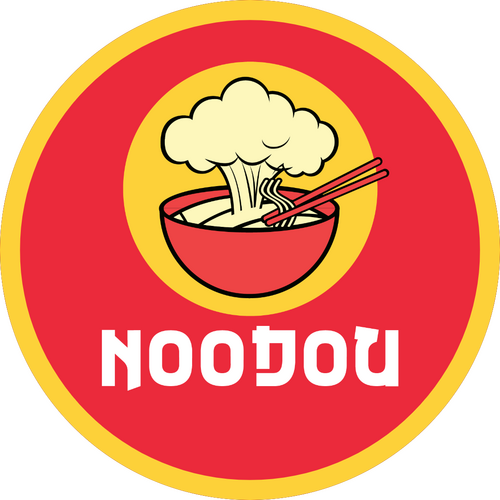Lights of Renewal: Celebrating Deepavali in Malaysia
18 小时前
Deepavali, also widely known as Diwali in other parts of the world, is one of Hinduism’s most important and joyful festivals. Falling on October 20 this year, it marks a time of spiritual reflection, renewal, and togetherness. The word Deepavali comes from the Sanskrit phrase dipavali, meaning “row of lights.” True to its name, the celebration transforms homes, temples, and streets into glowing displays of oil lamps, candles, and colourful lights.
A FESTIVAL ROOTED IN HISTORY AND FAITHDeepavali’s origins trace back thousands of years, with variations across India’s diverse regions and linguistic traditions. Its underlying message, however, remains constant: the victory of light over darkness.
In North India, the festival commemorates Lord Rama’s return to Ayodhya after defeating the demon king Ravana, an event described in the ancient Hindu epic Ramayana. Citizens lit oil lamps to welcome Rama, Sita, and Lakshmana home after their 14-year exile, and those lights came to symbolise the power of righteousness and hope.
In South India, many associate Deepavali with the triumph of Lord Krishna over the demon Narakasura, who had imprisoned thousands of women. The day represents liberation and the restoration of moral order. In other traditions, Deepavali celebrates the goddess Lakshmi, the bringer of prosperity, or marks the start of a new year in the Hindu calendar.
These different interpretations share one spirit: Deepavali is a reminder that goodness ultimately prevails and that renewal – both moral and spiritual – is always possible.
TRADITIONS AND SYMBOLISMPreparations for Deepavali begin well before the festival itself. Homes are thoroughly cleaned and decorated, symbolizing the removal of negativity and the welcoming of blessings. In many Hindu households, new clothes are purchased, debts are settled, and relationships mended before the celebration begins.
Oil lamps, or diyas, are lit inside and outside the home, often in intricate arrangements. They represent enlightenment and the light of inner truth. Many Malaysians also adorn their entrances with kolam, beautiful patterns made with coloured rice or powder, believed to bring prosperity and invite the goddess Lakshmi’s presence.
Festive meals take centre stage during Deepavali. Tables overflow with sweet and savoury treats such as murukku, laddu, gulai, and samosa. Families visit one another’s homes in an open-house tradition, sharing food, laughter, and goodwill.
DEEPAVALI IN MALAYSIAIn Malaysia, Deepavali is both a national public holiday and a vibrant showcase of the country’s multicultural spirit. The festival is celebrated primarily by the Indian Hindu community, but it resonates far beyond religious lines. Many non-Hindus join in the festivities, enjoying open houses, temple visits, and street celebrations.
In the days leading up to the festival, neighbourhoods in cities such as Kuala Lumpur, Penang, and Ipoh burst into colour. Little India in Brickfields becomes a hub of activity, with stalls selling saris, jewellery, decorations, and traditional sweets. The air fills with the aroma of jasmine, incense, and spiced snacks as families prepare for the big day.
Temples, including the Sri Mahamariamman Temple in Kuala Lumpur and the Arulmigu Balathandayuthapani Temple in Penang, hold special prayers and rituals. Devotees offer flowers, fruits, and coconut milk to the deities, seeking blessings for peace and prosperity. Many also observe rituals at dawn, beginning the day with an oil bath, an act symbolizing purification and renewal.
The sense of community is palpable. Streets are lined with lights and festive music, while television networks air Deepavali specials featuring dance, song, and storytelling that reflect Malaysia’s Indian heritage. It is a time not only for devotion but also for celebration, unity, and pride in cultural identity.
THE FESTIVAL’S CONTEMPORARY MEANINGBeyond its religious roots, Deepavali has evolved into a broader celebration of light, kindness, and resilience. In a fast-paced modern world, its themes remain deeply relevant. The lighting of lamps is no longer seen only as a ritual act but also as a symbol of hope and humanity… a call to dispel prejudice, ignorance, and despair.
In Malaysia’s multicultural setting, Deepavali stands as a reminder of shared values that transcend belief systems: the importance of family, the pursuit of goodness, and the power of renewal. It offers an opportunity for reflection and gratitude, a pause to acknowledge how light – both literal and metaphorical – continues to guide daily life.
Each year, Malaysians of all backgrounds come together in appreciation of the festival’s warmth and meaning. Corporate offices, schools, and public institutions decorate their spaces and organize Deepavali events, reflecting how deeply the celebration has become woven into Malaysia’s social fabric.
Even as traditions adapt to modern life, the spirit of Deepavali endures. It is seen in the flickering lights across suburban neighbourhoods, in the aroma of sweets shared among friends, and in the quiet moment of prayer at dawn when devotees offer thanks for another year of blessings.
For Malaysia’s Hindu community, Deepavali remains one of the year’s most anticipated celebrations – a time to honour faith, family, and the enduring belief that light will always overcome darkness.
...Read the fullstory
It's better on the More. News app
✅ It’s fast
✅ It’s easy to use
✅ It’s free









